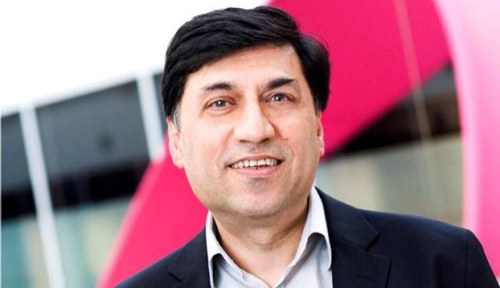
The maker of Nurofen, Scholl and Durex products, Reckitt Benckiser Group PLC, has sealed a $90-a-share takeover of the US baby milk maker Mead Johnson, which will boost Reckitt’s position in China, the US and Mexico.
Reckitt Benckiser boss Rakesh Kapoor said that the takeover fitted the company’s consumer health strategy and would generate £200m of cost savings after three years, although it would take around five years to make a return on the deal. “The acquisition of Mead Johnson takes us into a global market leadership position in consumer health.”
Kapoor is the second best paid Chief Executive in the FTSE 100 and received £23m in pay last year. If the Reckitt boss lifts earnings per share by more than 10pc over the next three years he will be in line for share awards worth up to £15.4m.
However, Kapoor defended his pay package by highlighting that Reckitt’s shareholder returns had been three times higher than its rivals over the last five years. “This deal is not about buying growth,” Kapoor argued. “If you cannot grow a business organically then you will be found out in 12 to 18 month….My focus is on shareholder value, it is shareholder value that drives me.”
Kapoor said that Mead Johnson was a “trusted brand” that would fit with Reckitt Benckiser’s “200-year history as the trusted maker of Dettol and other household products”. He added that the Mead Johnson deal was “structurally attractive”.
Adrian Hennah, Reckitt’s Chief Financial Officer, said that Reckitt was confident in the long term strength of Mead Johnson and that it could grow its 12pc share of the Chinese market.
Food business under review
Reckitt Benckiser is also the owner of America’s best-selling mustard – and has just started a strategic review of its food business.
Lianne van den Bos, Senior Packaged Food Analyst at Euromonitor comments: “Sauces, Dressings and Condiments only make up 2% of RB’s global sales, which makes the potential disposal of its food brands a logical and inevitable move as it does not fit the core business of health, hygiene and home. Its Mustard brand ‘French’s’ is by far its largest global food brand (US$238m) where North America makes up the majority of sales, followed by Frank’s Red hot Cayenne pepper sauce (US$ 95m).”
Financial headaches with Nurofen
Meanwhile in Australia, the makers of Nurofen will suffer a financial headache after being ordered to pay legal costs and losing a High Court appeal against a $6 million fine for misleading consumers.
The Australian Competition and Consumer Commission (ACCC) first took Reckitt Benckiser to court in 2015 for its “specific pain range” packaging, which highlighted back pain, period pain, migraines and tension headaches painkillers despite the tablets being chemically identical. While Nurofen Specific Pain products were similar to other standard Nurofen ibuprofen tablets, they cost almost double.
The company was initially ordered to pay a $1.7 million fine, but the watchdog successfully appealed and the Federal Court increased the “inadequate” fine to $6 million.
The High Court of Australia has this week dismissed the company’s appeal against the higher penalty and ordered it to pay legal costs.
The company believed the original punishment was appropriate and said while it didn’t intend to mislead consumers, it recognised that more could have been done to “assist” them in navigating the product range.



